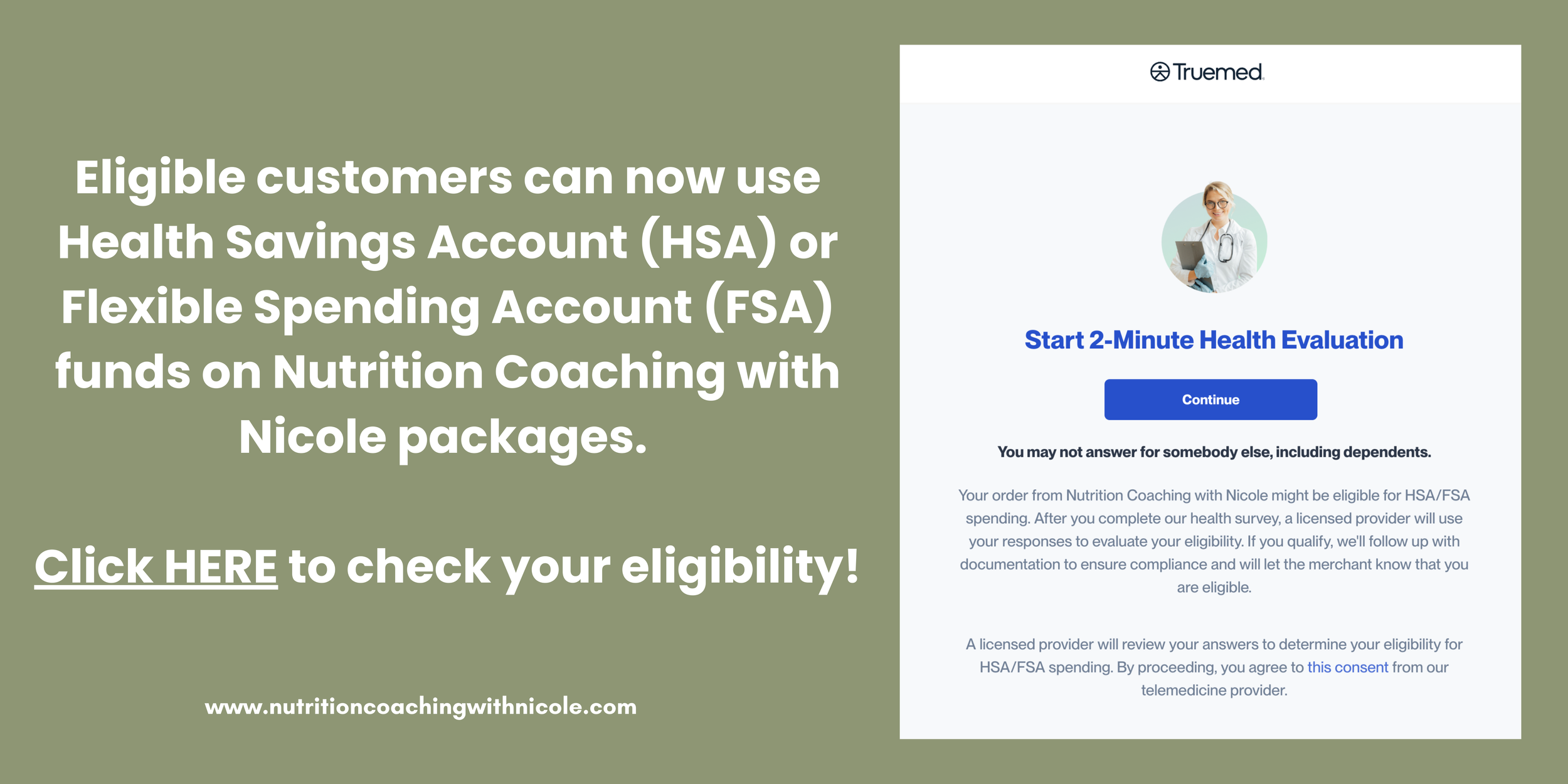When Eating More Can Actually Help You Lose Weight
If you’ve ever started nourishing your body after years of dieting and thought, “This feels like so much food…,” you’re not alone. That fear is one of the most common reactions I see when my 1:1 Nutrition Coaching clients finally start eating enough to support their bodies after years of extreme dieting.
At first, it can feel overwhelming, uncomfortable, even wrong. But here’s the truth: that feeling has far more to do with your brain than your body. Let’s unpack why that is, what’s actually happening when you start fueling your body properly, and why “more food” might be the thing your metabolism, hormones, and long-term goals have been waiting for all along.
Why This Fear Feels So Real
For decades, Diet Culture has conditioned us - as women - to believe that less is better. Less food. Less hunger. Less body. Less noise. We’ve been praised for skipping meals, applauded for eating “like a bird,” and told that smaller portions mean more discipline.
So when you finally start eating meals that are adequately sized; balanced, nutrient-dense, and satisfying, your brain can interpret that change as danger.
It’s not that your body doesn’t need the food. It’s that your belief system has been trained to view a satisfying and balanced plate as “too much food” - it’s your brain trying to protect a long-held identity shaped by chronic dieting and scarcity.
Your Body Actually Needs a Lot of Calories — Just to Exist
Let’s talk physiology for a minute…
Your body burns calories all day long, even if you don’t move an inch.
This baseline level of energy expenditure is called your Basal Metabolic Rate (BMR): the number of calories your body needs to maintain basic functions like breathing, hormone production, circulation, and cell repair.
For women, the average BMR is approximately 1,400 calories per day before accounting for any movement, workouts, or even walking your dog.
When you eat less than your body requires, you’re not creating a “healthy calorie deficit” - you’re underfueling. Over time, that leads to slower metabolism, disrupted hormones, and increased cravings (your body’s SOS signals).
Eating More Often Leads to Eating Less (Here’s Why)
One of the biggest mindset shifts my clients experience is realizing that eating more nourishment; more meals, more balance, more protein and fiber often leads to eating fewer calories overall.
When you stop restricting, your body stops rebounding.
When you eat balanced meals, your cravings calm down.
When your blood sugar is stable, you no longer spend your evenings rummaging through the pantry.
It’s not magic. It’s metabolic regulation.
And what feels like “too much food” actually ends up being fewer calories overall than what you were consuming when you were oscillating between moments of under eating and overeating.
Learning to nourish your body adequately after years of restriction is one of the bravest things you can do. It challenges everything diet culture has ever taught you and it demands patience, compassion, and consistency.
But when you stick with it, the payoff is enormous:
Stable energy
Healthy hormones
Peace around food, and
A metabolism that finally feels like it’s working with you, not against you
So if you’ve caught yourself thinking, “This feels like too much food,” take a deep breath.
And ask yourself whether that’s something your BODY is telling you, or a story your BRAIN has been conditioned to believe.
